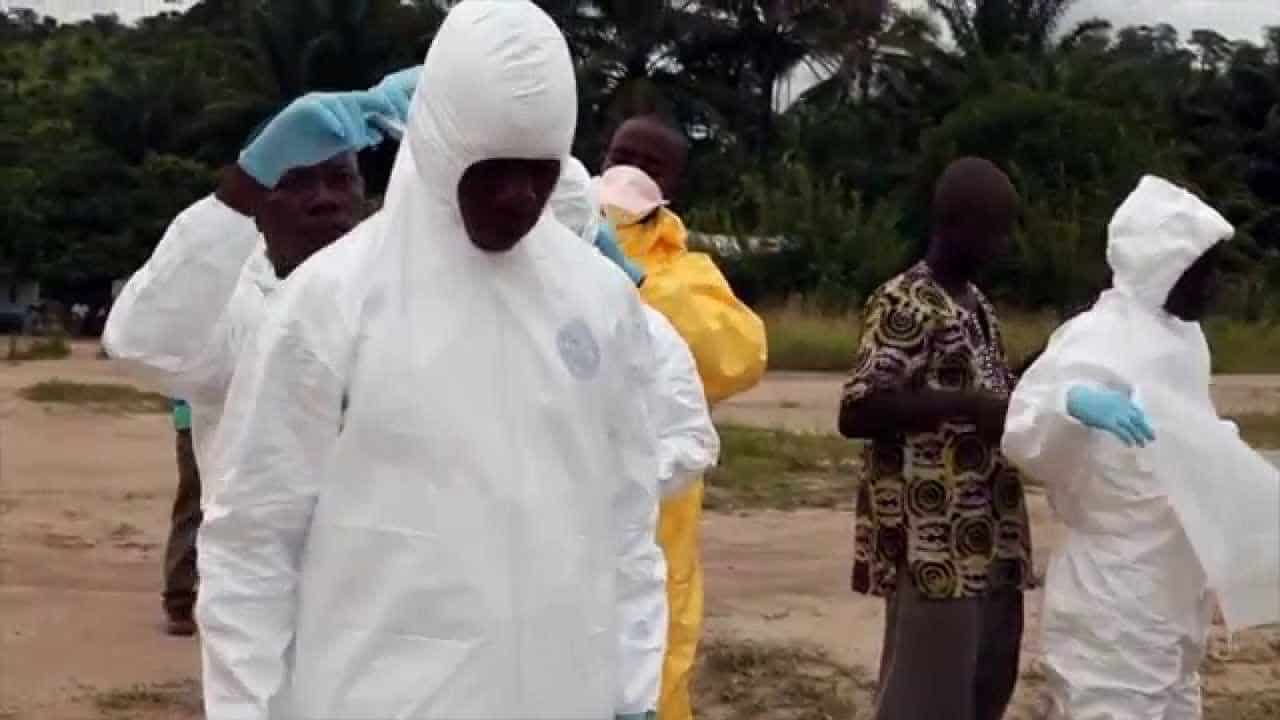


Written by Roger Knox
Published by Vernon Morning Star on Sunday, February 1, 2015
Some days, Kendell Kauffeldt admits, he’d wake up with a sore throat and wonder.
Wonder if he had the Ebola virus that, in 2014, was sweeping through the West African country of Liberia, where Kauffeldt has been based as country director for the Calgary-based Samarita’s Purse organization since 2004.
Part of his mandate includes being the Ebola response manager. He and his staff, which includes 400 nationals and 20 ex-pats, were having their temperatures taken four times a day during the outbreak.
“The longest 30 seconds of the day is waiting for that thermometer to beep so you can look at the results,” said Kauffeldt, 44, in Vernon, Kelowna and Kamloops over the past week presenting to government officials on the Ebola outbreak.
“At the end of the day, you have an upset stomach and you wonder, “‘is this Ebola?’ You’re constantly going through that. The situation was overwhelming because of the whole stress and fear.”
Ebola’s symptoms include fever, vomiting and diarrhea, followed by bleeding, organ failure and death.
“Because the symptoms are so common, you wake up in the morning, take your temperature and actually write it on a piece of paper, staple it to your shirt so we know you’re healthy and we can work with you,” said Kauffeldt, who arrived in Liberia in 2005 with Samaritan’s Purse to help the country respond to the end of its civil crisis.
He is joined in Monrovia, Liberia’s capital, by his wife, Beverly, daughter of Okanagan-Shuswap MP Colin Mayes, and their two sons.
Neither Kauffeldt, his wife, family or any of his staff have contracted the deadly virus. As of late January, nearly 21,700 cases of Ebola had been recorded, killing almost 8,700 people.
When Ebola hit the country in March 2014, Samaritan’s Purse and Doctors Without Borders were the only organizations responding, and both began a massive awareness campaign teaching Liberians how to protect themselves.
As the outbreak escalated, Samaritan’s Purse began to clinically respond which involved the running and management of Ebola treatment units.
“My staff were putting on hazmat suits,” said Kauffeldt. “We were involved in the front end. At that point of the outbreak, Doctors Without Borders were overwhelmed and could not respond. As an organization, we were the lead in responding to Ebola. We saw everything at that point.
“The situation became overwhelming. The number of cases outgrew the strategy and response by the government and UN agencies.”
Because Samaritan’s Purse had been in Liberia for nearly 10 years, Kauffeldt said it has been able to establish good relationships with the country’s government which allowed it the credibility to respond to the outbreak.
“We were listened to, but we still faced opposition because of fear and mistrust the Liberians had, which is natural,” said Kauffeldt. “We were positioned really well to respond to the situation.”
Ebola fighters were named Time Magazine’s Person of the Year in 2014, but Kauffeldt said the disease wasn’t well known globally until American doctor Kent Brantly contracted Ebola. He survived.
“The outbreak is now a global event and Canada is not immune to potential threats in the future,” said Kauffeldt which is one of the reasons he’s speaking to government about his experiences.
“Our willingness to talk about it helps ready us in the future for any situation. We knew about the outbreaks so much earlier than the world actually took notice. We tried to get our governments and other governments to take notice. It wasn’t until Dr. Brantly was shown on the global news feed that participants took notice.”
Kauffeldt and his family plan to return to Liberia in early February.
Click here to learn more about Samaritan’s Purse.
Your donation to Health Projects helps Samaritan’s Purse Canada meet the needs of some of the most vulnerable people around the world providing funds for life-saving medical equipment and surgical assistance, disease prevention initiatives and community health programs and training opportunities. We also offer spiritual support and eternal hope by meeting these critical needs while sharing the love of Christ.